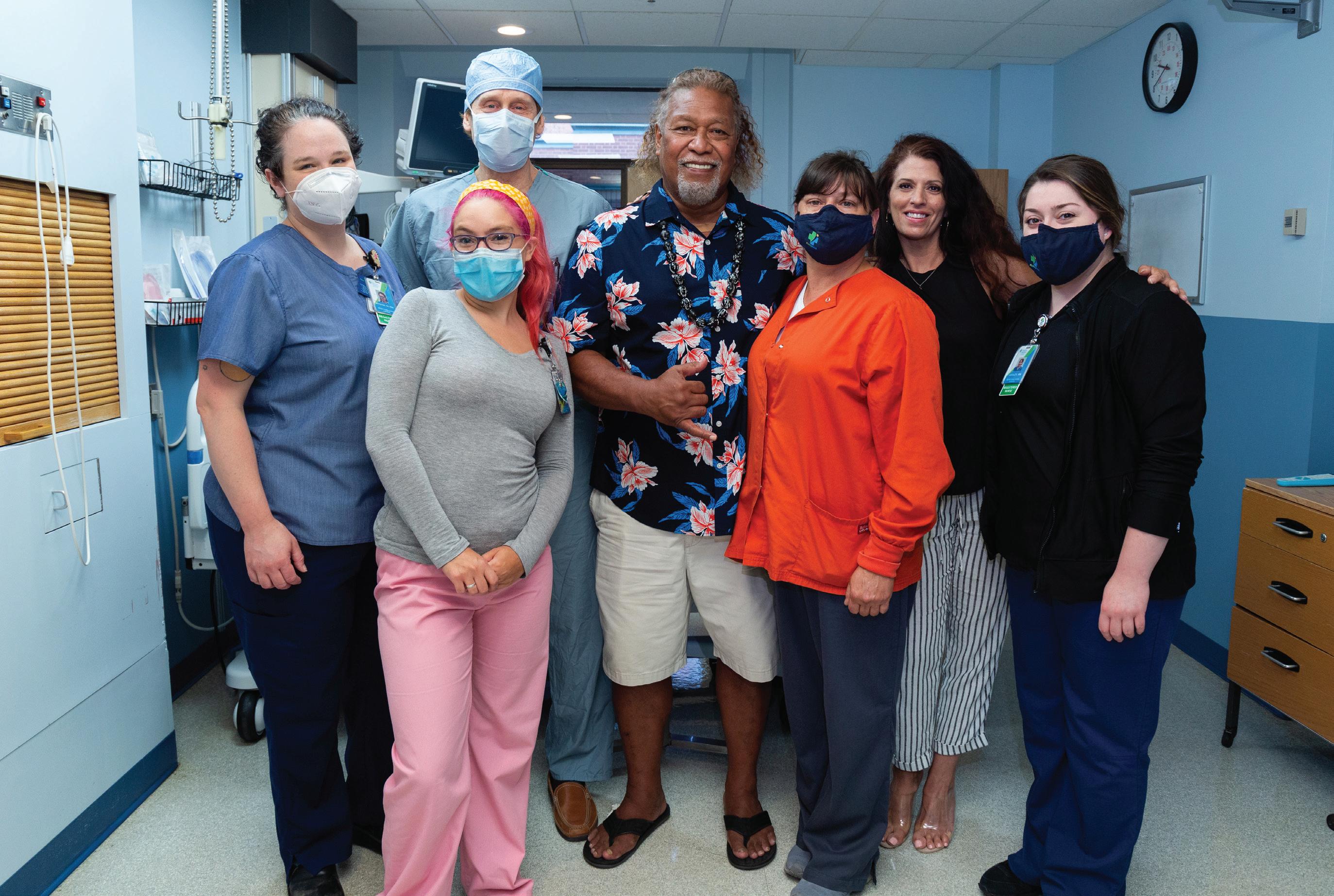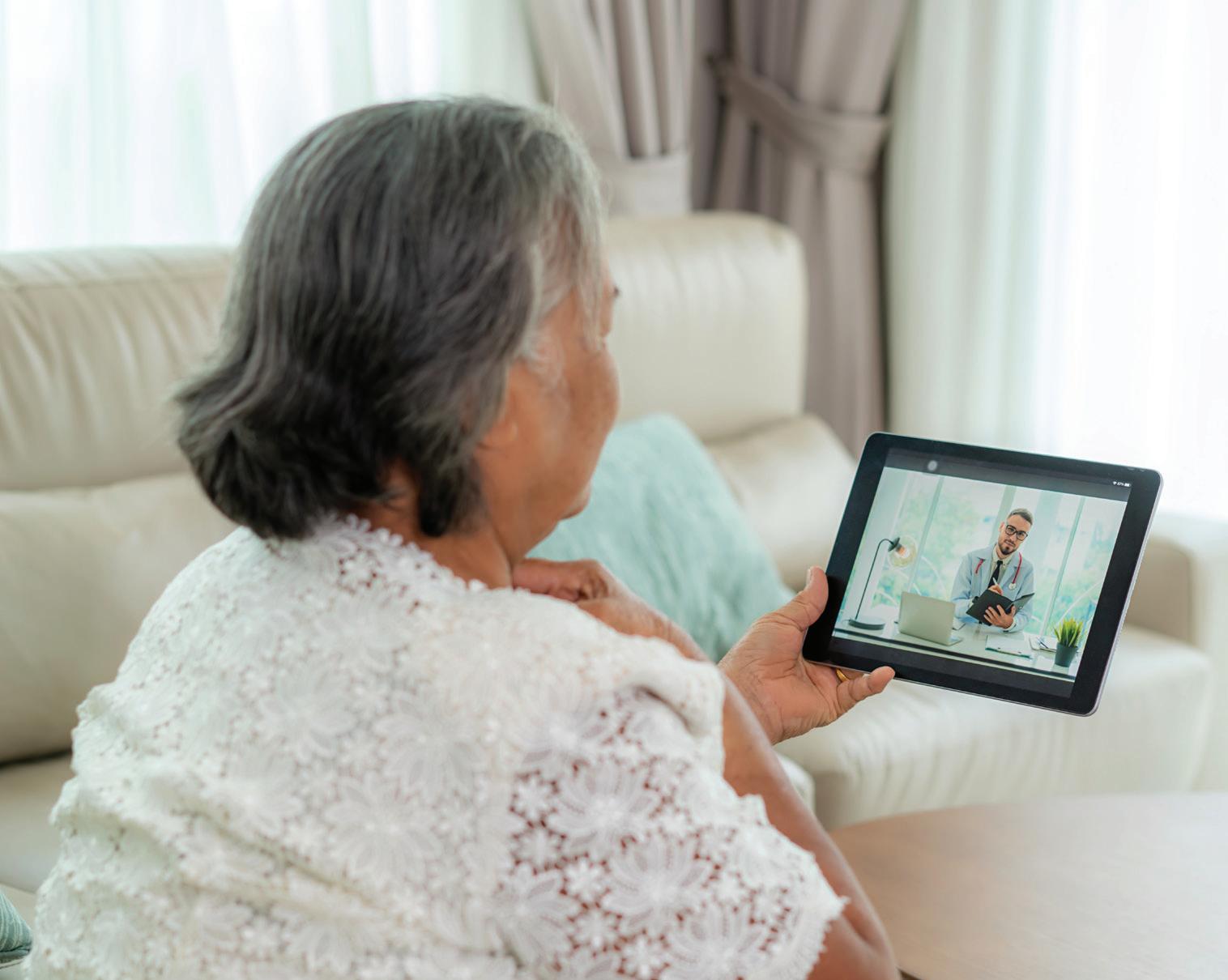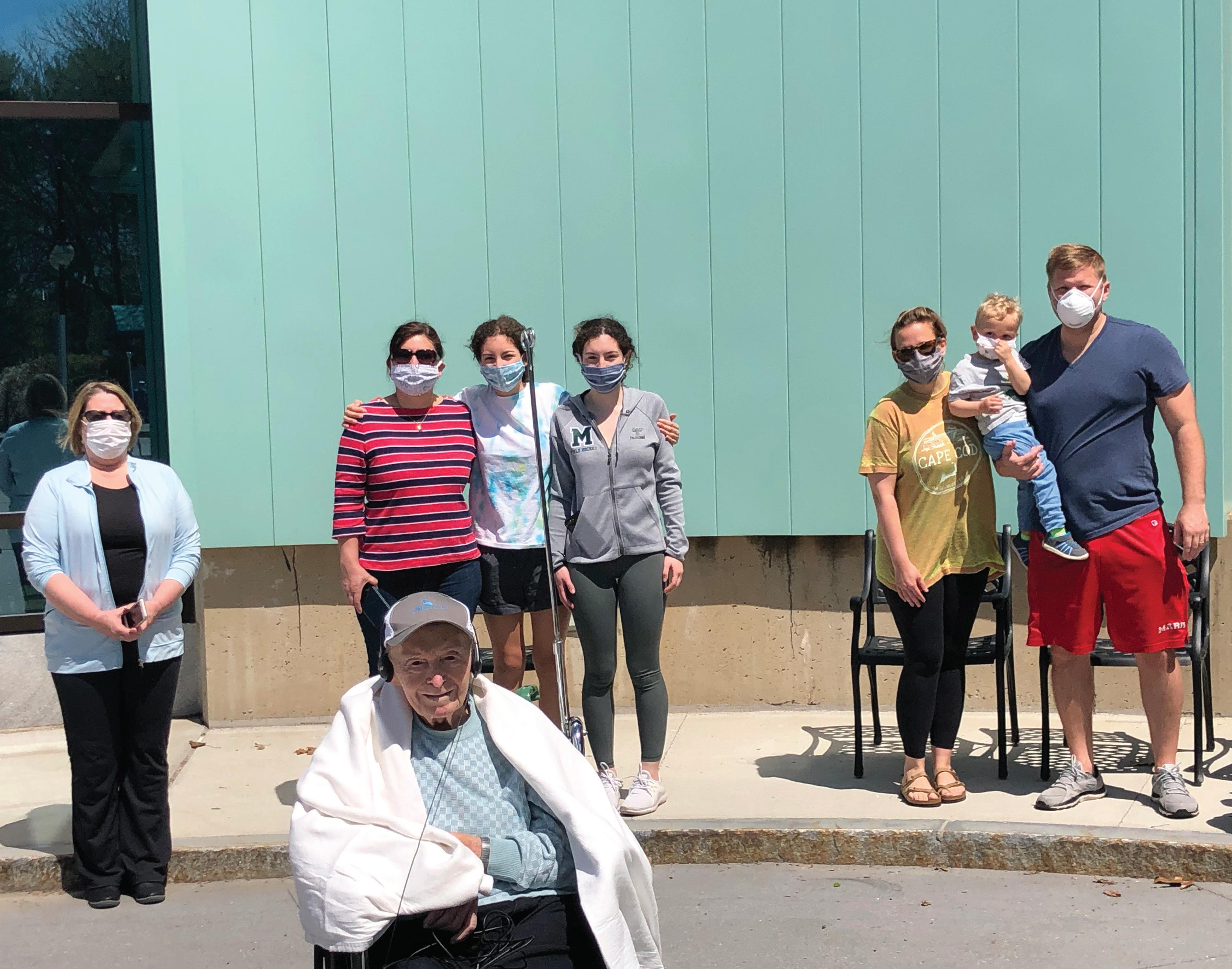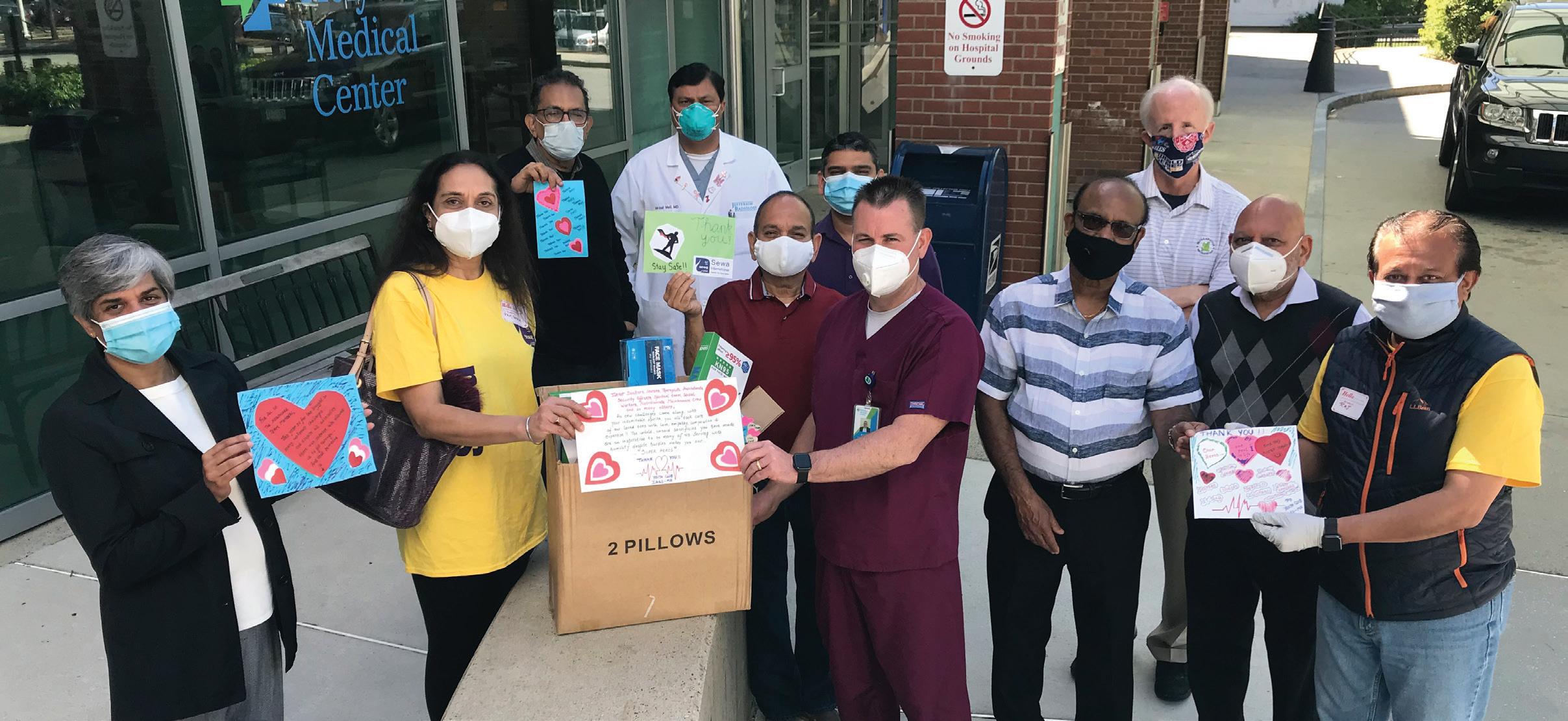
4 minute read
THE MUSIC KEPT ME GOING How expert medical care
Matini Kaio (center) and his wife Lisa (second from right) came back to the Intensive Care Unit to thank the team that helped bring Matini back to health.
HOW EXPERT MEDICAL CARE, COMPASSION AND MUSIC HELPED ONE MAN WIN HIS LONG BATTLE AGAINST COVID-19.
THE MUSIC that originally brought Lisa and Matini Kaio together nearly 30 years ago played a vital role in his recovery from COVID-19. Matini, 63, and Lisa met and married when they were both dancers at the Hu Ke Lau restaurant in Chicopee. The Polynesian dance and music that were Matini’s heritage played a major part in their life together.
In March, when Matini heard rumors about the coronavirus, Lisa urged him not to worry; no one they knew had been sick. But later that month, Matini began to develop serious symptoms. “He had a fever for five days along with body aches,” Lisa remembers. “He also stopped eating. I made a video appointment with our doctor who said that if his fever didn’t break by the next day, I should take him to the hospital.”
When Matini’s fever reached 104 degrees, Lisa took him to Holyoke Medical Center.
“I wasn’t allowed to go in with him,” she says. “When he walked through those ER doors, it was the last time I saw him for over a month.”
Matini’s chest X-ray indicated pneumonia, which can be caused by the novel coronavirus. Though his COVID-19 test results wouldn’t be available for several days, the emergency physicians decided to treat him as if that were the cause of his illness.
When Matini’s test came back positive, Lisa, who had no active symptoms, consulted her own doctor and was told to self-quarantine for two weeks. By then, Matini’s lung function had deteriorated to the point where he had to be placed on a ventilator to help him breathe. SPECIAL CARE AND EMPATHY The separation required for COVID-19 patients makes the illness especially challenging for family and friends, who are unable to visit or comfort their loved ones. That’s why the special care and empathy of the staff at Holyoke Medical Center made such a difference to the Kaios.
“The nurses and doctors went out of their way to be supportive,” says Lisa. “I’d call in four or five times a day to find out how he was. He had his cell phone, so I asked the nurses to place the phone to his ear. Even though he couldn’t respond, I still talked to him.” Andrey Pavlov, MD, a pulmonologist and Chief of the Intensive Care Unit (ICU) at Holyoke Medical Center, together with other intensivists and the multispecialty ICU team, played a central role in Matini’s treatment. “Matini was a relatively early COVID patient,” says Dr. Pavlov. “He was memorable because we rarely have patients from Polynesia, and because of the severity of his disease.” “Dr. Pavlov was extremely caring and explained every detail of what was happening,” says Lisa. “He and the staff were involved with Matini’s care 24/7, as if it were a battle.” Matini’s condition worsened quickly and he required a lot of support in intensive care. “He had a tracheotomy, which is used to support people who require a ventilator for a long

Andrey Pavlov, MD
Matini and Lisa Kaio met and married while they were both dancers at the
Hu Ke Lau restaurant in
Chicopee.

time,” says Dr. Pavlov. “And he came near to requiring dialysis for his kidneys. In the end, he did much better than we expected.”
THE MAGIC OF MUSIC In addition to the skilled and attentive care Matini received, both he and Lisa believe another factor played a crucial role in his recovery. Lisa brought Matini’s CD player and CDs of Polynesian music to the hospital and asked the nurses to place earphones in his ears and keep this music playing. They were happy to comply. While he’s unable to remember much from his time in the hospital, this specific detail remains vivid to Matini.
“The Polynesian songs were such a help to me,” he says. “I had so many dreams where I was dancing again, and that lifted my spirits. When I finally recovered, I had no idea how much time had passed.” Thirty-seven days after he entered the emergency department, Matini was discharged. He’d lost over 60 pounds, and he could barely walk. But Lisa believes that his years of dancing helped him regain his mobility relatively quickly. After only two weeks in rehabilitation, he was able to return home, where he continues to improve.
Looking back on his ordeal, Matini says: “I think the medical staff learned from my illness about treating this virus, which was new at the time, and I’m happy about that. I’m also glad that my wife brought my music, and the nurses were kind enough to make sure I could hear it. I felt it inside me, and it kept me going.”






